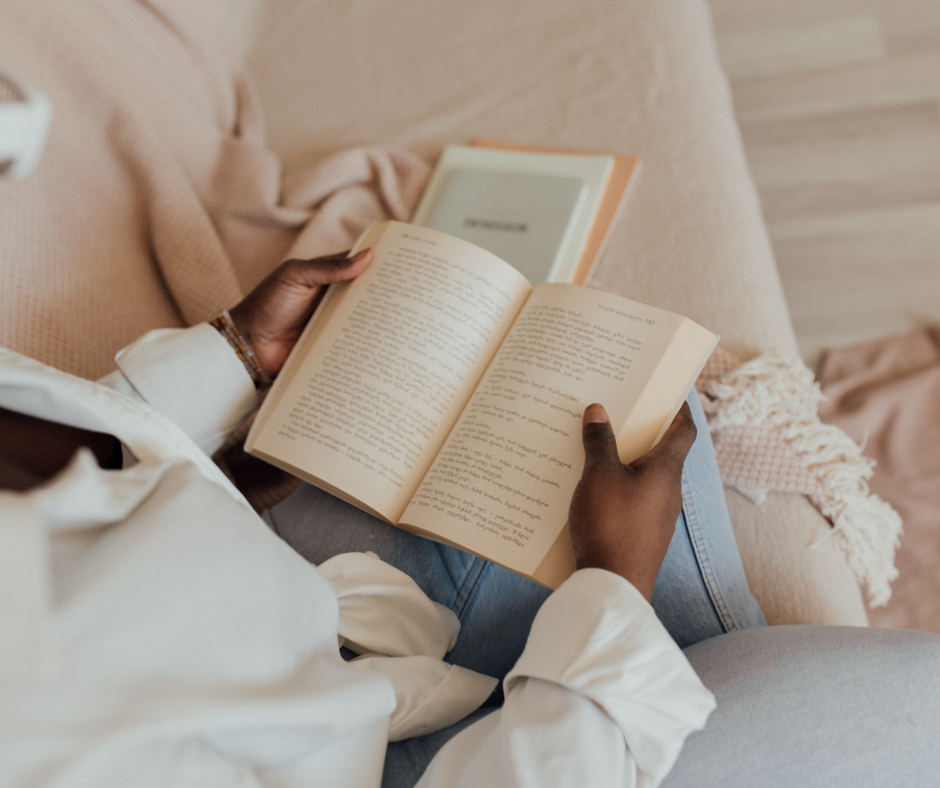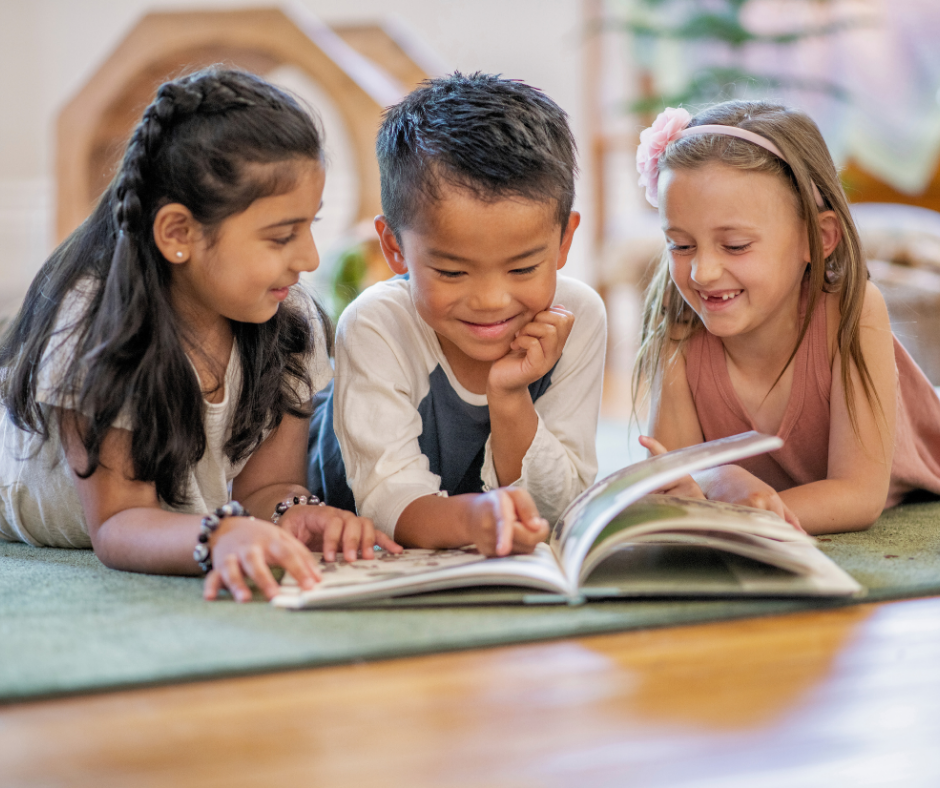

Audiobooks vs Reading: Is a Book Better Than Oral Storytelling?
Summary
Reflection Questions
Journal Prompt
When describing your absolute favorite books from last year to a group of friends, has the modality you chose ever been called into question? Have the naysayers pushed you to ponder “Does listening to audiobooks count?” Well, we too have wondered if there truly are significant differences in reading comprehension and recall between the consumption of physical books and audio books. Is information processed differently by the brain when it passes through ears instead of eyes? Are audiobooks as good as reading? Let’s get into it!
Is Reading a Traditional Book Better than Listening to Audiobooks?


While scientists haven’t found a clear winner between reading and audiobooks for comprehension, our evolutionary history might favor listening. After all, we have been communicating through spoken word for tens of thousands of years. Our brains are wired for spoken language, making initial information absorption potentially easier. However, reading allows for deeper focus and revisiting confusing passages, which can be advantageous for complex material.
Ultimately, the best format comes down to personal preference. Some people enjoy the immersive experience of an audiobook, while others value the control and focus that comes with a physical book. There’s also the multitasking advantage of audiobooks, while reading offers a quiet escape into the written word. But let’s delve a bit deeper.
How the Brain Processes Oral and Written Language


Spoken language is innate. Humans evolved to speak, after all. Our brains have dedicated regions for processing spoken language from a very early age, making it incredibly natural. In some ways, this makes listening comprehension more natural for children and even for adults.
On the other hand, reading and writing are learned. Reading and writing are relatively recent inventions in human history. The brain needs to be taught how to decode symbols (letters) and form meaning from them.
Fuel your creative fire & be a part of a supportive community that values how you love to live.
subscribe to our newsletter
How Age Impacts This
Oral language acquisition is rapid in early life. Kids grasp their native tongue’s structure and complex vocabulary well before they begin to read. The brain rewires itself as reading skills are developed. Areas dedicated to object and visual recognition become involved in processing written language. This process can be more difficult as we age.
For most adults, comprehension of written and spoken language is similar, provided they are fluent in reading. As adults, we choose spoken or written language depending on the situation. Listening to a complex lecture is different than reading a novel for pleasure. Some people excel at learning through listening, while others are visual learners.
So, Do People Have Superior Listening or Reading Comprehension?


Now that audiobooks are a dime a dozen, this is what everyone wants to know! Do we understand and retain information better by reading or listening? It’s tricky to say definitively whether we have better listening comprehension than reading comprehension for a few reasons. As noted above, our brains did evolve with a predisposition for processing spoken language. This gives listening a natural head start.
Alternatively, reading comprehension is a complex skill that develops over time. We can become incredibly proficient at it, potentially surpassing our natural listening comprehension. Again, the difficulty of the text or speech you’re trying to understand matters a lot. A convoluted lecture or dense nonfiction book is likely harder to comprehend than a simple story, regardless of whether you’re reading or listening.
Reading comprehension can be aided by the ability to re-read, while distractions easily break your focus when listening. For most fluent readers, listening and reading comprehension are likely quite similar for everyday communication and simple narratives. However, when the material gets complex or distractions come into play, differences start to surface.
Of course, anyone with hearing loss will likely have better reading comprehension for obvious reasons, and conditions like dyslexia impact reading comprehension specifically, making listening a more effective mode of understanding.
Here’s What the Science Says About Reading vs Listening


Studies show similar areas of the brain are activated during listening and reading, suggesting our brains process information from stories in comparable ways. Audiobooks can be fantastic for accessing literature while commuting, exercising, or doing routine tasks. Reading can be better for complex material you need to study, since it’s easier to go back and re-read sections for greater comprehension.
A recent study of ninety-one participants found that “both males and females in each condition recalled an equal amount of information, regardless of whether they listened to an audiobook, read from an e reader, or both listened and read simultaneously [e-readers and audiobooks].” Another study that examined the responses of sixth grade students found that “they liked the audiobook, listening to the application, the application led to a desire to listen more among students, they comprehended better after listening, and it was an enjoyable activity.”
In fact, many studies have found that access to audiobooks improves literacy and interest in reading among children—particularly at-risk kids. What it seems comes down to is this: do you read more often and enjoy the content more intensely with audiobooks or with traditional books?
An Ancient History of Oral Storytelling: Making the Case for Audiobooks


Sites that make adding audiobooks to the queue practically effortless might be recent inventions, but so is reading a physical copy of a book. Oral storytelling, however, has existed for centuries.
Our long history of oral storytelling lends significant credence to the appeal and effectiveness of audiobooks. For thousands of years, before the advent of written language, stories were passed down through the spoken word. Virtually every culture throughout history has developed its own rich oral storytelling traditions. These serve to share history, pass down wisdom, and provide entertainment.
Audiobooks tap into this deeply ingrained way of experiencing narratives, making them feel natural and engaging. Like those who gathered around ancient storytellers, we can now absorb literature while multitasking, mirroring how stories were traditionally woven into the fabric of everyday life.
Furthermore, oral traditions ensured stories were accessible to everyone, regardless of literacy levels. Audiobooks continue this tradition, making literature available to those with visual impairments or reading difficulties. The power of skilled narrators to evoke emotion and atmosphere is undeniable, echoing the way gifted oral storytellers captivated their audiences. While audiobooks differ from the live, adaptable nature of traditional storytelling, they share the fundamental emphasis on the spoken word as the primary vessel for sharing stories.
Cultures with Captivating Oral Traditions


In West Africa, griots hold a revered position as the keepers of history, genealogists, advisors, and entertainers. Their intricate oral narratives blend history, mythology, praise songs, and social commentary. Griot performances are often accompanied by music and serve to reinforce cultural identity, transmit values, and educate communities.
Indigenous groups across the globe, from Native American tribes to Maori in New Zealand and Aboriginal Australians, possess a profound storytelling heritage. These stories frequently center around creation myths, ancestral knowledge, explanations of the natural world, and teachings about morality and community. Storytelling is essential to maintaining cultural traditions and passing on vital knowledge across generations.
The legacy of Celtic bards and storytellers deeply permeates Irish culture. These skilled wordsmiths could weave tales of mythical heroes, recount historical battles, or offer satirical commentary on society. Storytelling remains an integral part of Irish identity, manifesting in traditional music, lively pub sessions, and the continued appreciation for the power of a well-told story.
India boasts a tapestry of storytelling traditions embedded in diverse religions, languages, and regional customs. From epics like the Ramayana and Mahabharata to folktales and vibrant performance arts like Kathakali dance-drama, storytelling plays a crucial role in conveying religious beliefs, moral teachings, and the complexities of daily life in India.
Final Thoughts on Reading Books vs Listening to Audiobooks
In the end, comprehension between listening to audiobooks and reading print books is very similar. Most studies show no significant difference in how people understand and retain information whether they’ve read it or listened to it.
Certain situations may favor one or the other. Reading can be better for complex material you need to revisit, while audiobooks shine with multitasking and convenience.
Personal preference plays a major role! Many people simply enjoy listening to an audiobook over reading a physical book (or vice versa). On the whole, we absorb that information in the same way regardless of modality.
Design Dash
Join us in designing a life you love.
-
All About Our 7-Day Focus & Flex Challenge
Sign up before August 14th to join us for the Focus & Flex Challenge!
-
Unique Baby Names Inspired by Incredible Women from History
Inspired by historic queens, warriors, artists, and scientists, one of these unusual baby names might be right for your daughter!
-
Finding a New 9 to 5: How to Put Freelance Work on a Resume
From listing relevant skills to explaining your employment gap, here’s how to put freelance jobs on your resume.
-
What is Generation-Skipping, and How Might it Affect Sandwich Generation Parents?
The emotional pain and financial strain of generation skipping can be devastating for Sandwich Generation parents.
-
Four Material Libraries Dedicated to Sustainability, Preservation, and Education
From sustainable building materials (MaterialDriven) to rare pigments (Harvard), each materials library serves a specific purpose.
-
Do You Actually Need a Beauty Fridge for Your Skincare Products? (Yes and No.)
Let’s take a look at what dermatologists and formulators have to say about whether your makeup and skincare belong in a beauty fridge.








